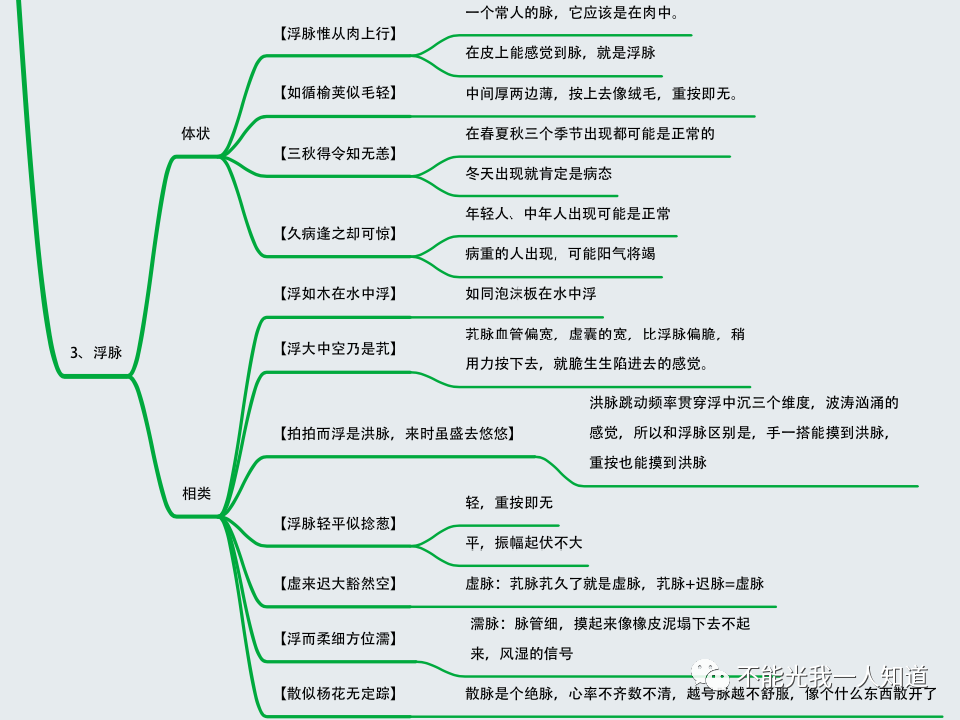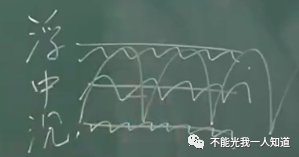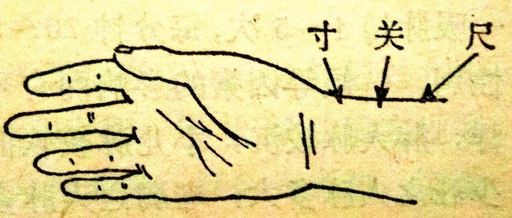Serious Statement: All content in this public account is organized from the courses of the Houpu Traditional Chinese Medicine Health Class, intended solely for the learning use of Houpu TCM students. Unauthorized dissemination for commercial purposes is prohibited, and violators will be held accountable.


😭When taking a pulse, the patient’s pathogenic qi can easily enter the physician’s body through the hands. This can manifest as a blockage below the wrist in mild cases, or as the pathogenic qi traveling up to the elbow and into the trunk in severe cases. To prevent this, when taking a pulse, the hands should be arched so that the acupoints Yangxi (阳谿), Yangchi (阳池), and Yanggu (阳谷) are elevated. If something feels off, quickly open the hand and shake it.
😭“Rapid Pulse” (疾脉): Exceeding several pulses, with a rate of seven beats per breath, approximately 120 beats per minute, accompanied by arrhythmia, making it difficult to count the beats.
If the pulse symptoms match, the person will experience thirst and drink a lot of cold water, feeling somewhat relieved after drinking. This may also include symptoms like convulsions, delirium, and high fever, which are all consistent with the condition. In cases of high fever, in addition to medication, immediately puncturing the Xuanjing (十宣井) acupoints to release blood, or bleeding from the arm or earlobe, can quickly alleviate the heart rate and reduce heart fire.
If the pulse symptoms do not match, there is no heat syndrome, and it appears after significant bleeding or sweating, indicating that both yin and yang are on the verge of exhaustion. Yin is first affected, and then the heart beats violently to maintain vital signs. This pulse beats very quickly but feels like a kite with a broken string, about to drift away. In such cases, it is crucial to use ginseng (人参) in large doses to prepare a decoction. If accompanied by cold symptoms, with cold hands and feet yet a rapid pulse, one should not clear heat; instead, it is necessary to tonify essence and blood, using large doses of red ginseng (红参). If there are cold symptoms, Aconite (炮附子) is needed. (In cases of yang deficiency, the pulse beats particularly fast and lacks strength, with the lower body feeling cold and the face appearing red. The tongue is also red, indicating that the yang is externally escaping, and the person is on the verge of death. In such cases, Tongmai Sini Decoction (通脉四逆汤) should be used, adding scallions and large doses of raw Aconite, and if necessary, adding children’s urine to guide the fire back to the source.)
😁The pulse’s floating and sinking relates to external pathogenic factors (六淫), seasonal changes, and emotional states: for normal individuals, spring generally signifies growth, while autumn and winter signify contraction, leading to a sinking pulse in winter. Thus, the normal pulse pattern is spring is floating, winter is sinking and solid.
😁Fine Pulse: The pulse vessel is fine and empty inside; it may likely be caused by temporary blood, essence, or fluid loss, having just been depleted.
String-like Pulse: Fine and straight;
Slippery Pulse: The pulse vessel is thick, with soft, substantial contents flowing smoothly like pearls;
Full Pulse: The pulse vessel is thick, with a sensation of hard, substantial contents.

